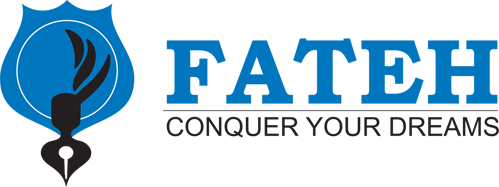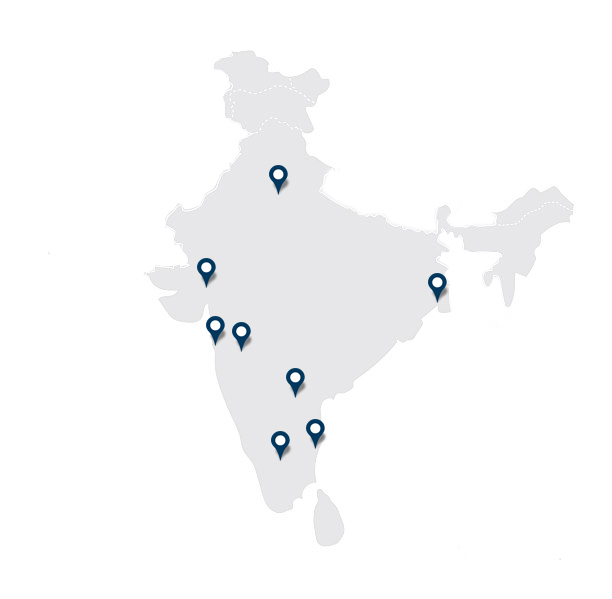Introduction
Education Loan for MBA: Eligibility
- For Students (Primary Applicants) Your eligibility as the primary applicant rests on a number of important issues. You should be between 18 and 35 years old, and you should have obtained confirmed admission into a credible institution. Banks do not merely check the name of the university; they assess whether your desired course has good job opportunities, since this clearly reflects your capacity to repay the loan upon graduation.Your academic background is paramount to the approval process. Banks look for good performance all the way through your studies, and in the case of overseas programs, scores in standardised tests such as IELTS, TOEFL, or GMAT become key eligibility indicators that reflect your preparedness to undertake the program.
-
-
Special Requirements for UK Universities
In addition to fulfilling all the general eligibility requirements, students heading to the UK need to present their CAS (Confirmation of Acceptance for Studies) letter and admission confirmation letter from the university.
-
- For Co-Applicants If you lack steady sources of income, the banks or financial institutions will need a co-applicant or co-borrower to secure the loan. It would normally be your parent or guardian who acts as your financial supporter. The co-applicant will have to prove regular income through salary slips, proof of income tax filing, and documents of business income in case of self-employment. The credit score of the co-applicant is essential as banks favour a CIBIL score of 700 or higher. This strong credit history makes your loan request much stronger and increases approval chances, as it ensures the bank of your repayment ability.
Expenses covered under the Education Loan
What Your Education Loan Covers
- Tuition Fees: This is the first cost that constitutes the majority of your loan amount. Your entire tuition fee structure is financed by the education loan.
- Living Costs: Banks realise you require funds for living costs while pursuing your studies. Living costs consist of your monthly expenditure on food, utilities, transport, and other daily essentials that fuel you through your MBA course.
- Cost of Accommodation: Regardless of whether you opt for on-campus accommodation, personal rentals, or shared flats, your accommodation costs are taken care of.
- Travel Costs: For international MBA courses, your travel expenses, including airfare to and from your study location, are covered.
- Examination and Administrative Charges: All the other expenses that are a part of your MBA course, such as application charges, examination charges, library fees, laboratory charges, and other administrative costs, are usually covered in your loan scheme.
- Study Materials and EquipmentYour study materials, such as textbooks, courseware, laptops, and other study equipment required for your MBA course, are all included under the loan.
Documents required for an Education Loan for an MBA without collateral
Student Documents (Primary Applicant)
- Academic and Admission Proof: Your offer or admission letter from the university is the anchor document, and it should specify your name, course name, and program duration clearly. Complete academic transcripts and certificates from 10th class onward, including your Bachelor’s degree and Master’s if you have one, are also required.
- Test Scores and Language Proficiency: Banks need your entrance exam scores, such as GMAT and language eligibility reports, such as IELTS, PTE or TOEFL scores that earned you a seat in the MBA program. They prove your academic preparation for the course.
- Travel and Identity Documents: For international MBA courses, you will require a valid passport with not less than six months’ validity remaining and your student visa. These demonstrate your legal right to travel as well as study abroad.
- Personal Documents and Financial Planning:Comprise a list of estimated expenses for the whole duration of your MBA, recent passport photographs, and your birth certificate. In case you have gap years in your career or academic history, make a clear explanation of these years.
Co-Applicant Documents
- Identity and KYC Verification: Your co-applicant will require the usual KYC documents such as PAN Card, Aadhaar Card, Passport, or Voter ID for proof of identity and address.
- Salaried Co-Applicant’s Income Evidence: If your co-applicant is employed, collect their recent salary slips, Form 16, ITRs, employment certificate, and bank account statements reflecting regular income deposits.
- Self-Employed Co-Applicant Requirements:For self-employed co-applicants, you will require business registration proof, ITR with computations in detail, CA-certified financial statements, and bank statements with business transactions.
Additional Documentation
Depending on your specific case and the lender, you may require additional documents. These may include an affidavit of support by your financial guarantor, university ranking or accreditation certificates to determine institutional credibility, insurance proposal forms, and a statement of purpose that fully explains your career objectives, especially for private lenders who consider applications more holistically.Tips to Increase Approval Chances
- Start Early:Begin your application immediately after receiving your university offer letter. This gives you time to compare lenders, prepare documents properly, and meet all deadlines without rushing.
- Choose the Right Lender: Compare public and private banks, focusing on interest rates and repayment flexibility. Different banks offer varying terms for MBA loans, so research thoroughly before deciding.
- Maintain Strong Co-Applicant Credentials:: Ensure your co-appl-icant has a strong credit score, stable income, and clean financial documentation. Their profile directly impacts your approval chances.
- Present Realistic Financial Planning: Create an accurate budget covering tuition, living expenses, travel, and other costs. Banks prefer realistic estimates over inflated figures as it shows financial maturity.
- Draft a Compelling Statement of Purpose: For NBFCs and private lenders, write a clear SOP outlining your career goals, why you chose this MBA program, and your repayment strategy.
- Leverage Tax Benefits Remind co-applicants about Section 80E tax deductions on education loan interest, making the loan financially attractive.
- Follow Up Proactively:Stay in regular contact with your loan officer, respond quickly to document requests, and clarify doubts immediately.
- Prepare for Verification:Banks will verify your documents and background. Ensure all parties are ready to cooperate with the verification process.
Conclusion
Getting an education loan for your MBA isn’t intimidating when you realise how the process and requirements work. From qualifying for eligibility and compiling the correct documents to selecting the optimal lender and executing approval tactics, every step gets you closer to financing your business school aspirations.
Still have questions about securing your MBA education loan? Reach out to us today for expert guidance and personalised assistance with your overseas education journey. Click now!
FAQs
Yes, taking a loan for an MBA is generally worth it, especially for programs like MBA that have strong placement records and high ROI. The salary hike and career advancement opportunities typically justify the loan investment, with most graduates recovering their education costs within 2-3 years of employment.
Yes, many banks offer 100% financing for MBA programs, particularly for studies abroad and at top-tier institutions. However, this depends on factors like your co-applicant's profile, chosen university ranking, and the bank's policies.
The best student loan varies based on your specific needs. Compare interest rates, processing fees, repayment terms, and coverage to find the most suitable option for your situation.


